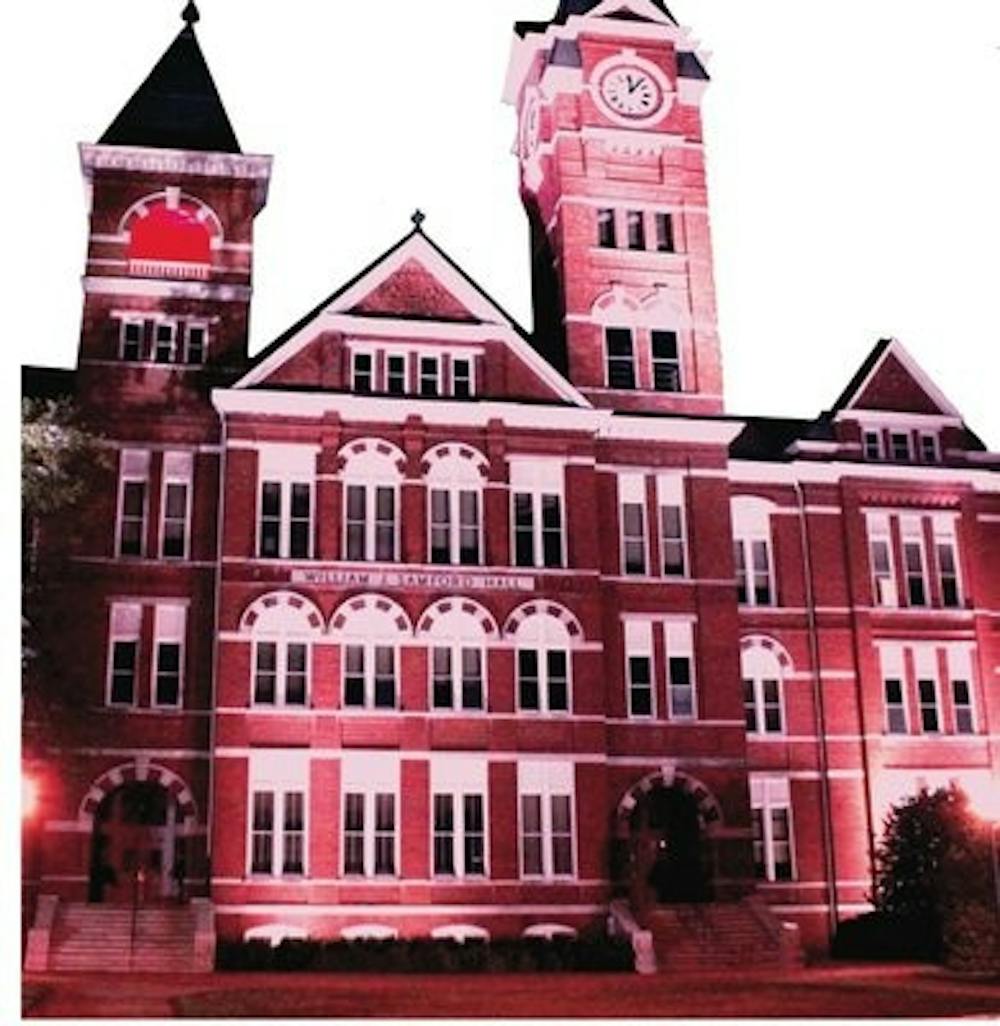With buildings on campus illuminated in a pink glow for Breast Cancer Awareness Month, faculty and students stress the importance of self-exams and routine mammograms to detect the disease early.
Early detection is particularly important to 2013 Auburn graduate Lauren Calvert, whose mother died of breast cancer last year.
Calvert said mammograms are not the only form of early detection.
"Self-exams are crucial," Calvert said. "My mother had a clear mammogram in June and found out Feb. 14 [through self-examination] she had breast cancer. They think she had it before that, they just couldn't see it through the mammogram."
For Calvert's mother, there were other difficulties in detection.
"If you have small breasts, your tissue is more dense, which means it's harder to detect if you have breast cancer," Calvert said.
However, Jenny Swaim, executive assistant and business manager for the Office of Enrollment, said routine mammograms are important.
"We need to remind employees to get it done for their own safety," Swaim said. "It's a life-saving thing."
Swaim said she focuses on increasing the use of mammogram services among Auburn faculty.
"Auburn employees have the opportunity to get a mammogram," Swaim said. "Auburn University is self-insured, so any medical costs we insure we pay for."
Swaim, in conjunction with the East Alabama Medical Clinic, coordinated lighting up well known buildings such as Cater Hall, Samford Hall and the Jule Collins Smith Museum to raise awareness and stress the importance of remaining vigilant.
The Zeta Tau Alpha sorority, whose national philanthropy is the Susan G. Komen Foundation, the largest breast cancer research organization in the U.S., worked with Swaim to raise awareness and ensure the buildings stay lit.
"They come and spread word to students while the EAMC holds a mammogram day on the hospital side," Swaim said.
Rachel Clement, junior in supply chain management and president of Zeta, said the illumination is important because it sparks discussion among students, faculty and locals.
"It's a way so when people drive past they ask why the building is pink," Clement said.
"It starts the conversation."
Swaim said she has seen improvement in the faculty's use of mammogram services offered to them in the last few years.
"In 2007, we only had 44 percent of eligible employees take advantage of the program, and it was the second largest medical expense the University had," Swaim said. "It has increased about 24 percent since we started, and that speaks volumes."
Clement said Zeta also stresses the importance of mammograms.
"Zeta, nationally, puts out this monthly email monthly as a mammogram reminder," Clement said. "We really work on getting people signed up."
Calvert, Auburn alumna said while detecting cancer early is important, it isn't the only factor in the disease's severity.
"It's a big thing, knowing you have it early," she said. "In (my mother's) case, it wasn't the same. She had a more aggressive cancer than a lot of people."
Calvert said there are several factors that play into breast cancer, regardless of early detection.
"It's not a cookie-cutter diagnosis," she said.
Do you like this story? The Plainsman doesn't accept money from tuition or student fees, and we don't charge a subscription fee. But you can donate to support The Plainsman.





